- Home
- Michael Connelly
The Black Ice (1993) Page 22
The Black Ice (1993) Read online
Page 22
On nothing more than a hunch, Bosch went to the Criminal Courts Building and ordered all of his mother’s cases from archives. In sorting through them, he found that in addition to the custody battle Haller had represented Margerie P. Lowe on six loitering arrests between 1948 and 1961. That was well into Haller’s time as a top trial lawyer.
In his gut, Harry knew then.
The receptionist in the five-name law office on the top floor of a Pershing Square
tower told Bosch that Haller had retired recently because of a medical condition. The phone book didn’t list his residence but the roll of registered voters did. Haller was a Democrat and he lived on Canon Drive
in Beverly Hills. Bosch would always remember the rosebushes that lined the walkway to his father’s mansion. They were perfect roses.
The maid who answered the door said Mr. Haller was not seeing visitors. Bosch told the woman to tell Mr. Haller it was Margerie Lowe’s son come to pay his respects. Ten minutes later he was led past members of the lawyer’s family. All of them standing in the hallway with strange looks on their faces. The old man had told them to leave his room and send Bosch in alone. Standing at the bedside, Harry figured him for maybe ninety pounds now, and he didn’t need to ask what was wrong because he could tell cancer was eating away at him from the inside out.
“I guess I know why you’ve come,” he rasped.
“I just wanted to . . . I don’t know.”
He stood there in silence for quite a time, watching how it wore the man out just to keep his eyes open. There was a tube from a box on the bedside that ran under the covers. The box beeped every once in a while as it pumped pain-killing morphine into the dying man’s blood. The old man studied him silently.
“I don’t want anything from you,” Bosch finally said. “I don’t know, I think I just wanted to let you know I made it by okay. I’m all right. In case you ever worried.”
“You have been to the war?”
“Yes. I’m done with that.”
“My son—my other son, he . . . I kept him away from that. . . . What will you do now?”
“I don’t know.”
After some more silence the old man seemed to nod. He said, “You are called Harry. Your mother told me that. She told me a lot about you. . . . But I could never. . . . Do you understand? Different times. And after it went by so long, I couldn’t. . . . I couldn’t reverse things.”
Bosch just nodded. He hadn’t come to cause the man any more pain. More silence passed and he heard the labored breathing.
“Harry Haller,” the old man whispered then, a broken smile on the thin, peeling lips burned by chemotherapy. “That could have been you. Did you ever read Hesse?”
Bosch didn’t understand but nodded again. There was a beep sound. He watched for a minute until the dosage seemed to take some effect. The old man’s eyes closed and he sighed.
“I better get going,” Harry said. “You take care.”
He touched the man’s frail, bluish hand. It gripped his fingers tightly, almost desperately, and then let go. As he stepped to the door, he heard the old man’s rasp.
“I’m sorry, what did you say?”
“I said I did. I did worry about you.”
There was a tear running down the side of the old man’s face, into his white hair. Bosch nodded again and two weeks later he stood on a hill above the Good Shepherd section at Forest Lawn and watched them put the father he never knew in the ground. During the ceremony, he saw a grouping that he suspected was his half brother and three half sisters. The half brother, probably born a few years ahead of Bosch, was watching Harry during the ceremony. At the end, Bosch turned and walked away.
• • •
Near ten o’clock Bosch stopped at a roadside diner called El Oasis Verde and ate huevos rancheros. His table was at a window that looked out at the blue-white sheath called the Salton Sea and then farther east to the Chocolate Mountains. Bosch silently reveled in the beauty and the openness of the scene. When he was done, and the waitress had refilled his Thermos, he walked out into the dirt parking lot and leaned against the fender of the Caprice to breathe the cool, clean air and look again.
The half brother was now a top defense lawyer and Harry was a cop. There was a strange congruence to that that Bosch found acceptable. They had never spoken and probably never would.
He continued south as 86 ran along the flats between the Salton Sea and the Santa Rosa Mountains. It was agricultural land that steadily dropped below sea level. The Imperial Valley. Much of it was cut in huge squares by irrigation ditches and his drive was accompanied by the smell of fertilizer and fresh vegetables. Flatbed trucks, loaded with crates of lettuce or spinach or cilantro, occasionally pulled off the farm roads in front of him and slowed him down. But Harry didn’t mind and waited patiently to pass.
Near a town called Vallecito, Bosch pulled to the side of the road to watch a squad of low-flying aircraft come screaming over a mountain that rose to the southwest. They crossed 86 and flew out over the Salton. Bosch knew nothing about identifying war aircraft in the modern era. These jets had evolved into faster and sleeker machines than those he remembered from Vietnam. But they had flown low enough for him to clearly see that beneath each craft’s wings hung the hardware of war. He watched the three jets bank and come about in a tight triangle pattern and retrace their path back to the mountain. After they crossed above him, Harry looked down at his maps and found blocks marked off to the southwest as closed to the public. It was the U.S. Naval Gunnery Range at Superstition Mountain. The map said it was a live bombing area. Keep out.
Bosch felt a dull vibration rock the car slightly and then the following rumble. He looked up from the map and thought he could make out the plume of smoke beginning to rise from the base of Superstition. Then he felt and heard another bomb hit. Then another.
As the jets, the silvery skin of each reflecting a diamond of sunlight, passed overhead again to begin another run, Bosch pulled back onto the road behind a flatbed truck with two teenagers in the back. They were Mexican field-workers with weary eyes that seemed already knowledgeable about the long, hard life ahead of them. They were about the same age as the two boys on the picnic table in the photo that had been in the white bag. They stared at Bosch with indifference.
In a few moments it was clear to pass the slow-moving truck. Bosch heard other explosions from Superstition Mountain as he moved away. He went on to pass more farms and mom-and-pop restaurants. He passed a sugar mill where a line painted at the top of its huge silo marked sea level.
• • •
The summer after he had talked to his father Bosch had picked up the books by Hesse. He was curious about what the old man had meant. He found it in the second book he read. Harry Haller was a character in it. A disillusioned loner, a man of no real identity, Harry Haller was the steppenwolf.
That August Bosch joined the cops.
• • •
He believed he felt the land rising. The farmland gave way to brown brush and there were dust devils rising in the open land. His ears popped as he ascended. And he knew the border was nearing long before he passed the green sign that told him Calexico was twenty miles away.
20
Calexico was like most border towns: dusty and built low to the ground, its main street a garish collision of neon and plastic signage, the inevitable golden arches being the recognizable if not comforting icon amid the drive-through Mexican auto insurance offices and souvenir shops.
In town, Route 86 connected with 111 and dropped straight down to the border crossroad. Traffic was backed up about five blocks from the exhaust-stained concrete auto terminal manned by the Mexican federales. It looked like the five o’clock lineup at the Broadway entrance to the 101 in L.A. Before he got caught up in it, Bosch turned east on Fifth Street
. He passed the De Anza Hotel and drove two blocks to the police station. It was a one-story concrete-block affair that was painted the same yellow as the tablets lawyer
s used. From the signs out front, Bosch learned it was also Town Hall. It was also the town fire station. It was also the historical society. He found a parking space in front.
As he opened the door of the dirty Caprice he heard singing from the park across the street. On a picnic bench five Mexican men sat drinking Budweisers. A sixth man, wearing a black cowboy shirt with white embroidery and a straw Stetson, stood facing them, playing a guitar and singing in Spanish. The song was sung slowly and Harry had no trouble translating.
I don’t know how to love you
I don’t even know how to embrace you
Because what never leaves me
Is this pain that hurts me so
The singer’s plaintive voice carried strongly across the park and Bosch thought the song was beautiful. He leaned against his car and smoked until the singer was done.
The kisses that you gave me my love
Are the ones that are killing me
But my tears are now drying
With my pistol and my heart
And here as always I spend my life
With the pistol and the heart
At the song’s end, the men at the picnic table gave the singer a cheer and a toast.
Inside the glass door marked Police was a sour-smelling room no larger than the back of a pickup truck. On the left was a Coke machine, straight ahead was a door with an electronic bolt, and on the right was a thick glass window with a slide tray beneath it. A uniformed officer sat behind the glass. Behind him, a woman sat at a radio-dispatch console. On the other side of the console was a wall of square-foot-sized lockers.
“You can’t smoke in there, sir,” the uniform said.
He wore mirrored sunglasses and was overweight. The plate over his breast pocket said his name was Gruber. Bosch stepped back to the door and flicked the butt out into the parking lot.
“You know, it’s a hundred-dollar fine for littering in Calexico, sir,” Gruber said.
Harry held up his open badge and I.D. wallet.
“You can bill me,” he said. “I need to check a gun.”
Gruber smiled curtly, revealing his receding, purplish gums.
“I chew tobacco myself. Then you don’t have that problem.”
“I can tell.”
Gruber frowned and had to think about that a moment before saying, “Well, let’s have it. Man says he wants to check a gun has to turn the gun in to be checked.”
He turned back to the dispatcher to see if she thought that he now had the upper hand. She showed no response. Bosch noticed the strain Gruber’s gut was putting on the buttons of his uniform. He pulled the forty-four out of his holster and put it in the slide tray.
“Foe-dee foe,” Gruber announced and he lifted the gun out and examined it. “You want to keep it in the holster?”
Bosch hadn’t thought about that. He needed the holster. Otherwise he’d have to jam the Smith in his waistband and he’d probably lose it if he ended up having to do any running.
“Nah,” he said. “Just checking the gun.”
Gruber winked and took it over to the lockers, opened one up and put the gun inside. After he closed it, he locked it, took the key out and came back to the window.
“Let me see the I.D. again. I have to write up a receipt.”
Bosch dropped his badge wallet into the tray and watched as Gruber slowly wrote out a receipt in duplicate. It seemed that the officer had to look from the I.D. card to what he was writing every two letters.
“How’d you get a name like that?”
“You can just write Harry for short.”
“It’s no problem. I can write it. Just don’t ask me to say it. Looks like it rhymes with anonymous.”
He finished and put the receipts into the tray and told Harry to sign them both. Harry used his own pen.
“Lookee there, a lefty signing for a right-handed gun,” Gruber said. “Somethin’ you don’t see ’round here too often.”
He winked at Bosch again. Bosch just looked at him.
“Just talking is all,” Gruber said.
Harry dropped one of the receipts into the tray and Gruber exchanged it for the locker key. It was numbered.
“Don’t lose it now,” Gruber said.
As he walked back to the Caprice he saw that the men were still at the picnic table in the park but there was no more singing. He got into the Caprice and put the locker key in the ashtray. He never used it for smoking. He noticed an old man with white hair unlocking the door below the historical society sign. Bosch backed out and headed over to the De Anza.
It was a three-story, Spanish-style building with a satellite dish on the roof. Bosch parked in the brick drive up in front. His plan was to check in, drop his bags in his room, wash his face and then make the border crossing into Mexicali. The man behind the front desk wore a white shirt and brown bow tie to match his brown vest. He could not have been much older than twenty. A plastic tag on the vest identified him as Miguel, assistant front desk manager.
Bosch said he wanted a room, filled out a registration card and handed it back. Miguel said, “Oh, yes, Mr. Bosch, we have messages for you.”
He turned to a basket file and pulled out three pink message forms. Two were from Pounds, one from Irving. Bosch looked at the times and noticed all three calls had come in during the last two hours. First Pounds, then Irving, then Pounds again.
“Wait a minute,” he said to Miguel. “Is there a phone?”
“Around the corner, sir, to your right.”
Bosch stood there with the phone in his hand wondering what to do. Something was up, or both of them wouldn’t have tried to reach him. Something had made one or both of them call his house and they heard the taped message. What could have happened? Using his PacBell card he called the Hollywood homicide table, hoping someone was in and that he might learn what was going on. Jerry Edgar answered the call on the first ring.
“Jed, what’s up? I’ve got phone calls from the weight coming out my ass.”
There was a long silence. Too long.
“Jed?”
“Harry, where you at?”
“I’m down south, man.”
“Where down south?”
“What is it, Jed?”
“Wherever you’re at, Pounds is trying to recall you. He said if anybody talks to you, t’tell you to get your ass back here. He said—”
“Why? What’s going on?”
“It’s Porter, man. They found him this morning up at Sunshine Canyon. Somebody wrapped a wire ’round his neck so tight that it was the size of a watchband.”
“Jesus.” Bosch pulled out his cigarettes. “Jesus.”
“Yeah.”
“What was he doing up there? Sunshine, that’s the landfill up in Foothill Division, right?”
“Shit, Harry, he was dumped there.”
Of course. Bosch should have realized that. Of course. He wasn’t thinking right.
“Right. Right. What happened?”
“What happened was that they found his body out there this morning. A rag picker come across it. He was covered in garbage and shit. But RHD traced some of the stuff. They got receipts from some restaurants. They got the name of the hauler the restaurants use and they’ve got it traced to a particular truck and a particular route. It’s a downtown run. Was made yesterday morning. Hollywood’s working it with them. I’m fixing to go start canvassing on the route. We’ll find the Dumpster he came from and go from there.”
Bosch thought of the Dumpster behind Poe’s. Porter hadn’t run out on him. He had probably been garroted and dragged out while Bosch was having his say with the bartender. Then he remembered the man with the tattooed tears. How had he missed it? He had probably stood ten feet from Porter’s killer.
“I didn’t go out to the scene but I hear he’d been worked over before they did him,” Edgar said. “His face was busted up. Nose broke, stuff like that. A lot of blood, I hear. Man, what a pitiful way to go.”

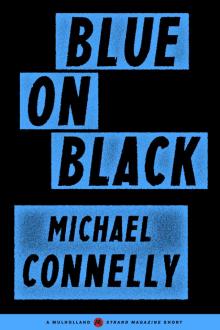 Blue on Black
Blue on Black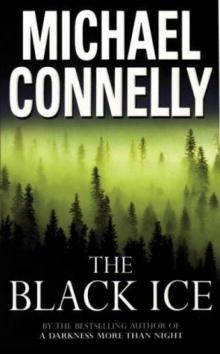 The Black Ice (1993)
The Black Ice (1993) Crime Beat: A Decade of Covering Cops and Killers
Crime Beat: A Decade of Covering Cops and Killers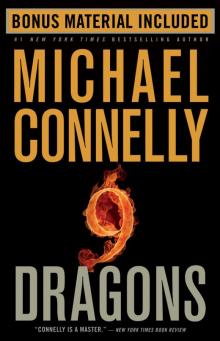 Nine Dragons
Nine Dragons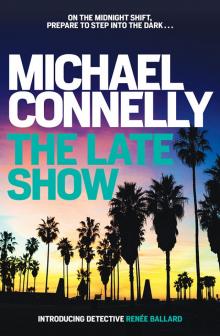 The Late Show
The Late Show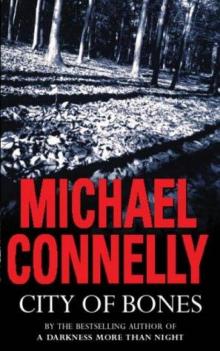 City of Bones
City of Bones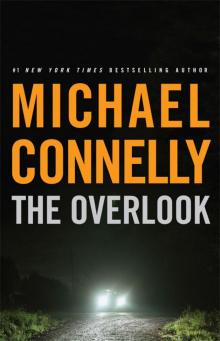 The Overlook
The Overlook The Crossing
The Crossing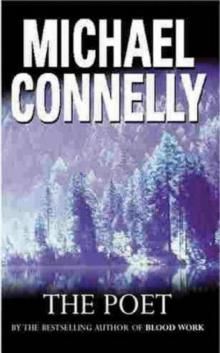 The Poet (1995)
The Poet (1995)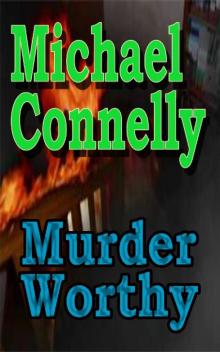 Murder Worthy
Murder Worthy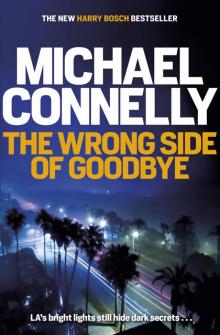 The Wrong Side of Goodbye
The Wrong Side of Goodbye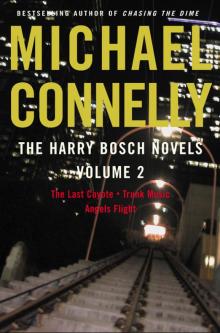 Harry Bosch Novels, The: Volume 2
Harry Bosch Novels, The: Volume 2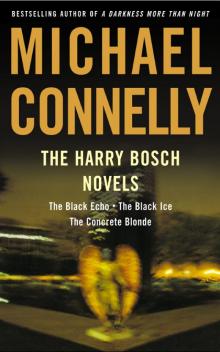 The Harry Bosch Novels
The Harry Bosch Novels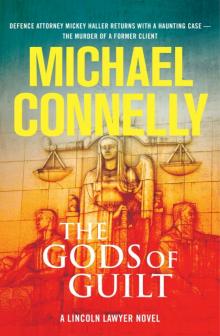 The Gods of Guilt
The Gods of Guilt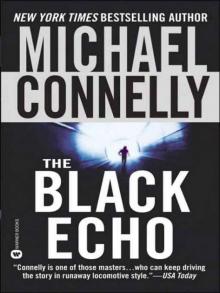 The Black Echo
The Black Echo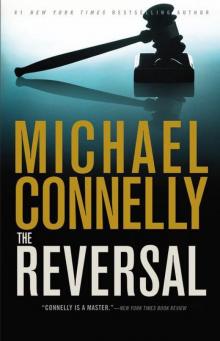 The Reversal
The Reversal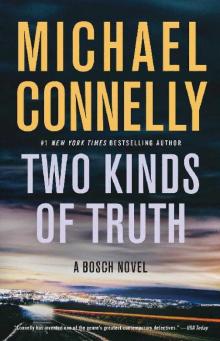 Two Kinds of Truth
Two Kinds of Truth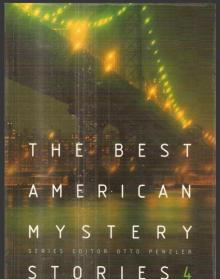 The Best American Mystery Stories 2003
The Best American Mystery Stories 2003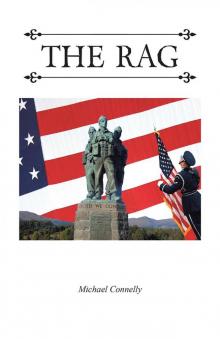 The Rag
The Rag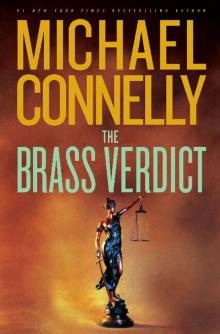 The Brass Verdict
The Brass Verdict The Black Echo (1992)
The Black Echo (1992)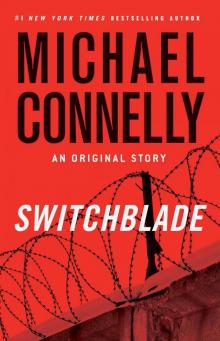 Switchblade
Switchblade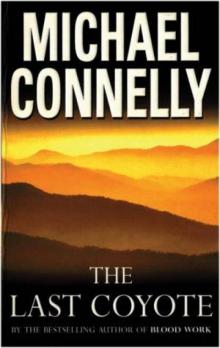 The Last Coyote
The Last Coyote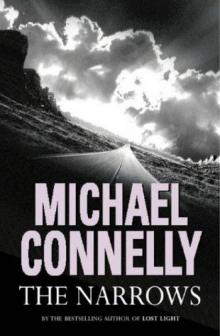 The Narrows
The Narrows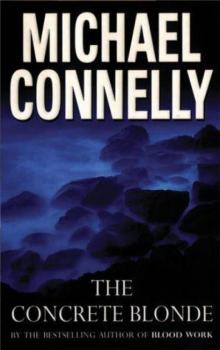 The Concrete Blonde (1994)
The Concrete Blonde (1994)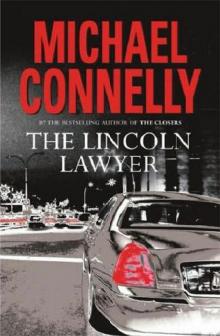 THE LINCOLN LAWYER (2005)
THE LINCOLN LAWYER (2005)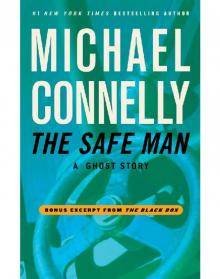 The Safe Man: A Ghost Story
The Safe Man: A Ghost Story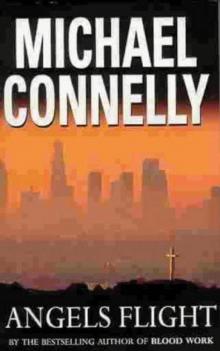 Angels Flight (1998)
Angels Flight (1998) Void Moon
Void Moon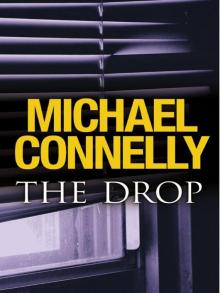 The Drop
The Drop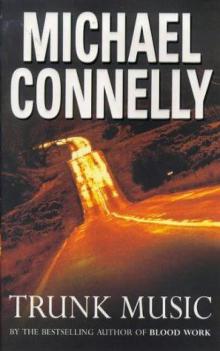 Trunk Music
Trunk Music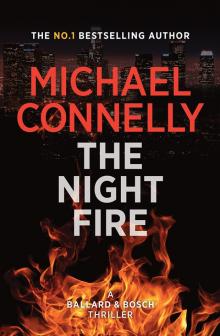 The Night Fire
The Night Fire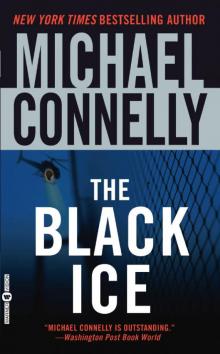 The Black Ice
The Black Ice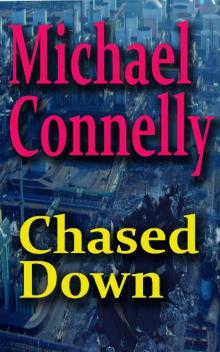 Chased Down
Chased Down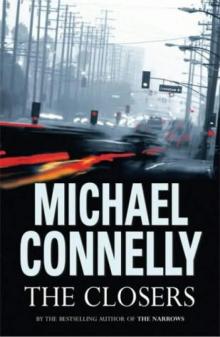 The Closers
The Closers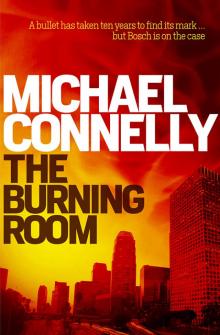 The Burning Room
The Burning Room Angels Flight
Angels Flight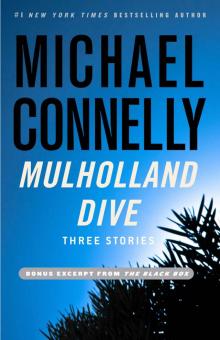 SSC (2012) Mulholland Drive
SSC (2012) Mulholland Drive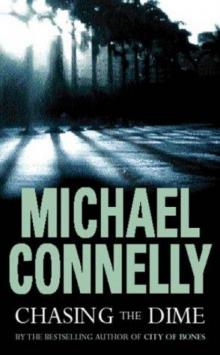 Chasing the Dime
Chasing the Dime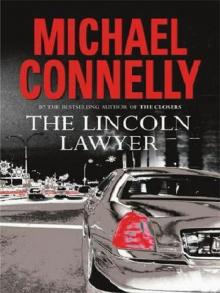 The Lincoln Lawyer
The Lincoln Lawyer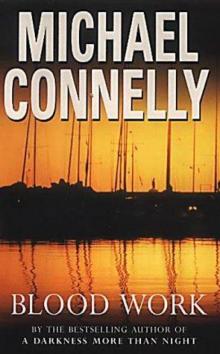 Blood Work (1998)
Blood Work (1998)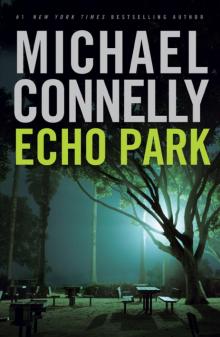 Echo Park
Echo Park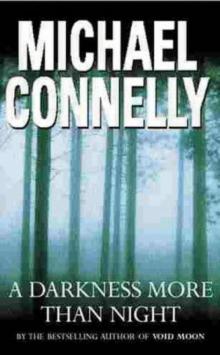 A Darkness More Than Night
A Darkness More Than Night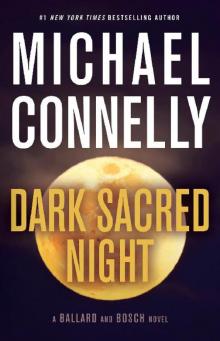 Dark Sacred Night - Ballard and Bosch #1;Renée Ballard #2
Dark Sacred Night - Ballard and Bosch #1;Renée Ballard #2 Lost Light
Lost Light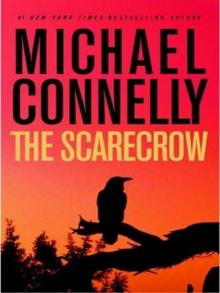 The Scarecrow
The Scarecrow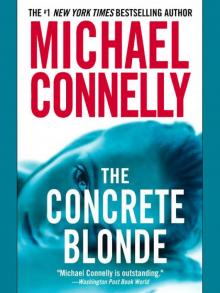 The Concrete Blonde
The Concrete Blonde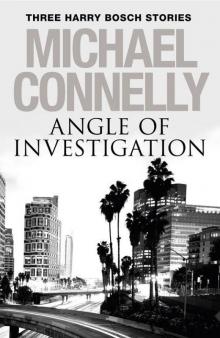 Angle of Investigation
Angle of Investigation Suicide Run: Three Harry Bosch Stories
Suicide Run: Three Harry Bosch Stories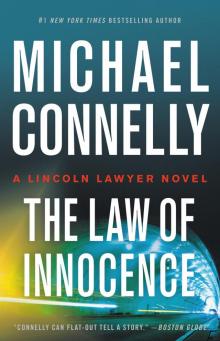 The Law of Innocence
The Law of Innocence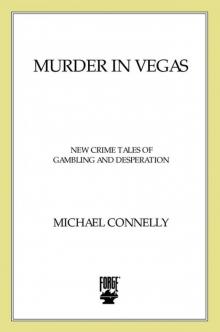 Murder in Vegas: New Crime Tales of Gambling and Desperation
Murder in Vegas: New Crime Tales of Gambling and Desperation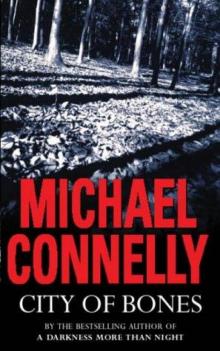 City Of Bones (2002)
City Of Bones (2002)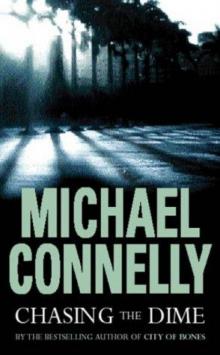 Chasing the Dime (2002)
Chasing the Dime (2002)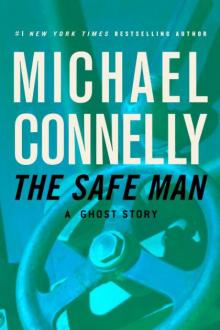 The Safe Man
The Safe Man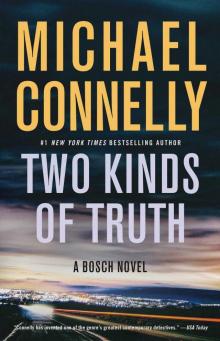 Two Kinds of Truth (A Harry Bosch Novel)
Two Kinds of Truth (A Harry Bosch Novel)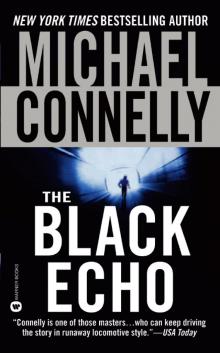 Harry Bosch 01 - The Black Echo
Harry Bosch 01 - The Black Echo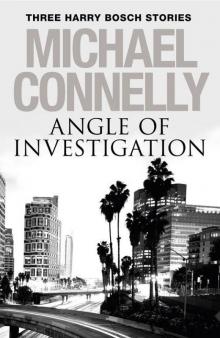 Angle of Investigation: Three Harry Bosch Short Stories
Angle of Investigation: Three Harry Bosch Short Stories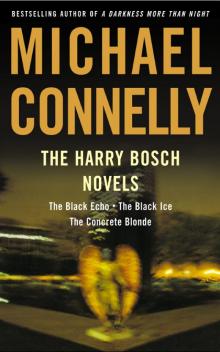 The Harry Bosch Novels Box Set 1
The Harry Bosch Novels Box Set 1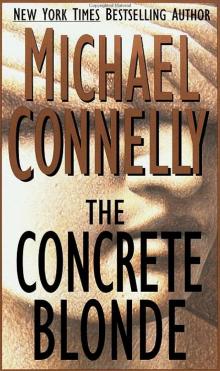 The Concrete Blonde hb-3
The Concrete Blonde hb-3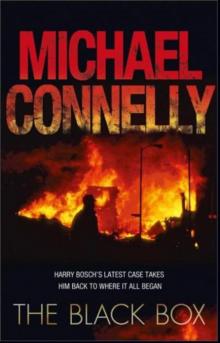 The Black Box hb-18
The Black Box hb-18 Short Stories
Short Stories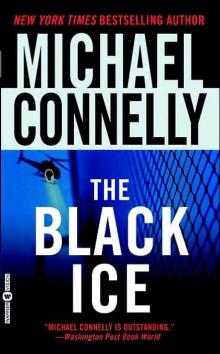 The Black Ice hb-2
The Black Ice hb-2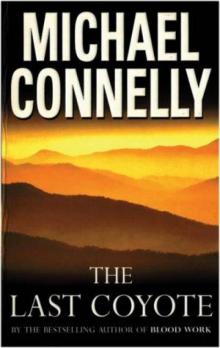 The Last Coyote (1995)
The Last Coyote (1995)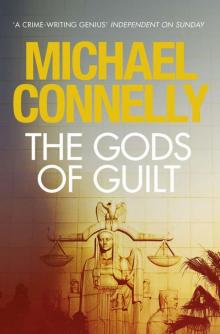 The Gods of Guilt mh-5
The Gods of Guilt mh-5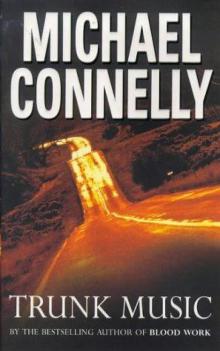 Trunk Music (1996)
Trunk Music (1996)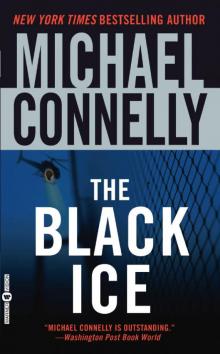 Harry Bosch 02 - The Black Ice
Harry Bosch 02 - The Black Ice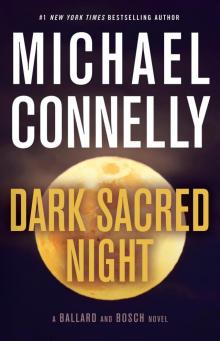 Dark Sacred Night
Dark Sacred Night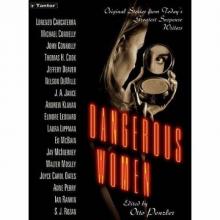 Cielo Azul
Cielo Azul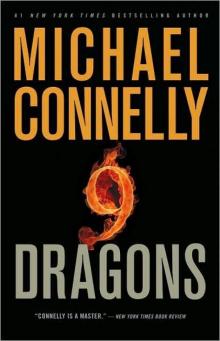 9 Dragons
9 Dragons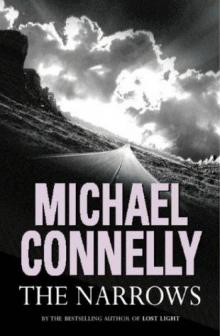 The Narrows (2004)
The Narrows (2004)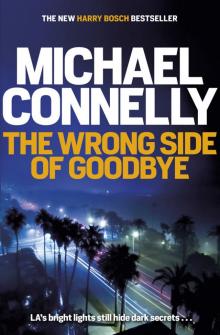 The Wrong Side of Goodbye (Harry Bosch Series)
The Wrong Side of Goodbye (Harry Bosch Series)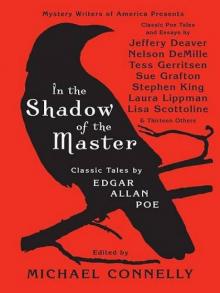 In The Shadow Of The Master: Classic Tales by Edgar Allan Poe
In The Shadow Of The Master: Classic Tales by Edgar Allan Poe Void Moon (1999)
Void Moon (1999)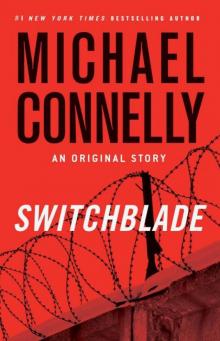 Switchblade: An Original Story (harry bosch)
Switchblade: An Original Story (harry bosch)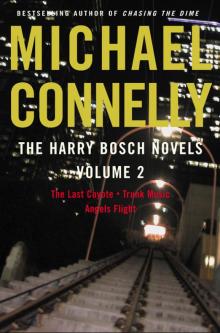 The Harry Bosch Novels, Volume 2
The Harry Bosch Novels, Volume 2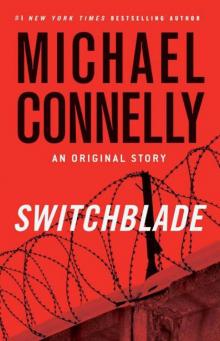 Switchblade: An Original Story
Switchblade: An Original Story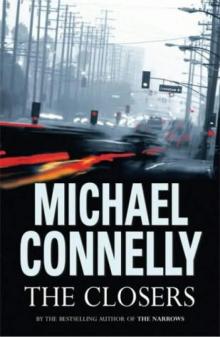 The Closers (2005)
The Closers (2005) Crime Beat
Crime Beat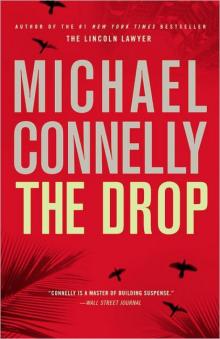 The Drop hb-17
The Drop hb-17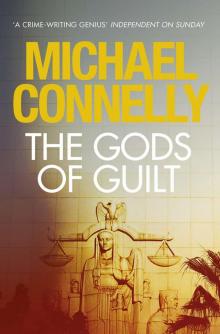 The Gods of Guilt (Mickey Haller 5)
The Gods of Guilt (Mickey Haller 5)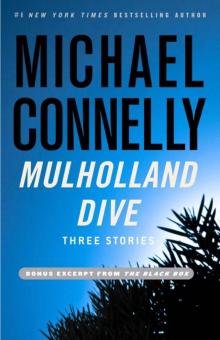 Mulholland Dive: Three Stories
Mulholland Dive: Three Stories Lost Light (2003)
Lost Light (2003)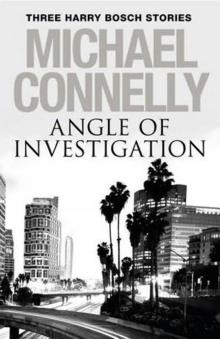 Angle of Investigation: Three Harry Bosch Stories
Angle of Investigation: Three Harry Bosch Stories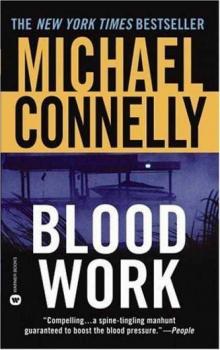 Blood Work
Blood Work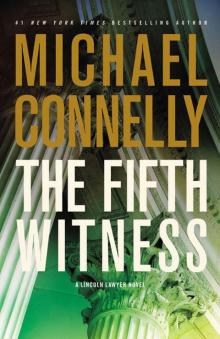 The Fifth Witness: A Novel
The Fifth Witness: A Novel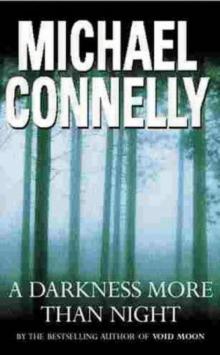 A Darkness More Than Night (2000)
A Darkness More Than Night (2000)